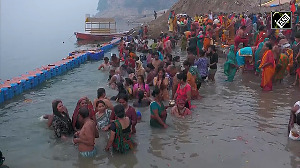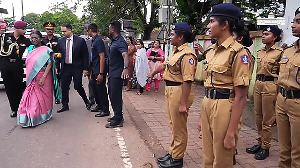After Mayawati-led Bahujan Samaj Party won absolute majority in the Uttar Pradesh assembly elections by successfully using social engineering, the Lucknow University has introduced a two-year post-graduate diploma course on the subject.
Though the course was introduced in the academic year 2006-07, this year the varsity conducted an all-India entrance test on Sunday last to select a total of 40 students.
"While 20 students will be from the general category, 10 will be sponsored by various institutions and organisations. The remaining 10 students will come from various countries of the South Asian region," programme co-ordinator Dr D K Sahu told UNI in Lucknow.
"With political parties deserting the idea of exclusion and moving towards inclusion of various castes and communities, social engineering has become an integral part of Indian polity," he added.
The Department of Sociology has 'outsourced' 95 per cent of the teaching faculty from various walks of life to carry out the teaching in social engineering.
"In this age of globalisation and localisation, the course aims at cultivating human resources capable of deducing a scientific analysis of public, private management, and development sector policies along with analysing leaders capable of being key professionals on various sectors in this dynamic social environment," claimed Dr Sahu.
These programmes will provide balanced education and research to foster disciplinary and interdisciplinary skill to analyse social system, he added.
Students will be exposed to theory and analytical skills in the areas of socio-economic-political systems, information sciences, rural-urban-industrial and environmental systems and operation research.
The PG diploma in Social Engineering will have four semesters and would be conducted through lectures and class discussions, debates, class assignments and project work involving fieldwork. For project work, students will identify a social issue for in-depth study.
The objective of the project work will be to get a 'book view' as well as a 'field view' on social issues and policy interventions on them.
Though each project group will study a particular social issue, the pedagogy of the class would be so organised that each project group's learning is shared with the class and besides their own project work, students also learn from the projects done by other members of the class.





